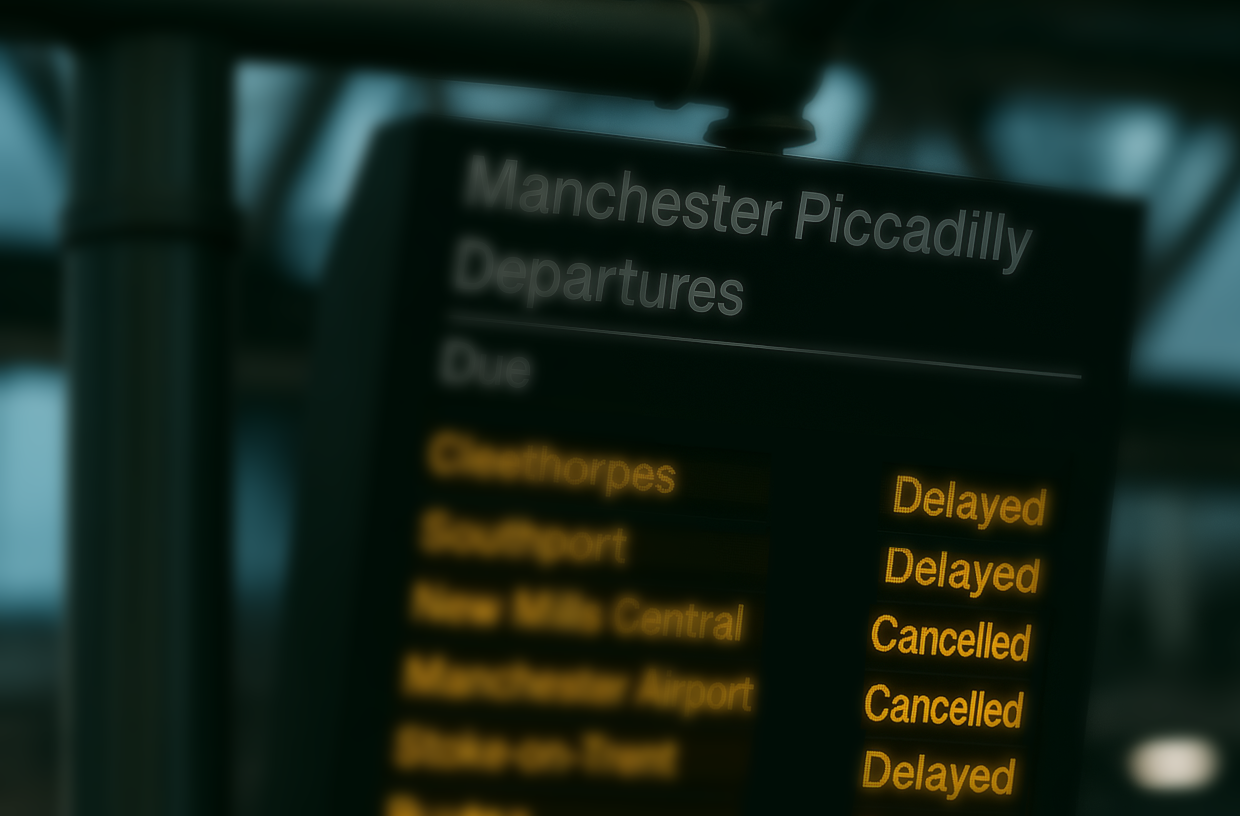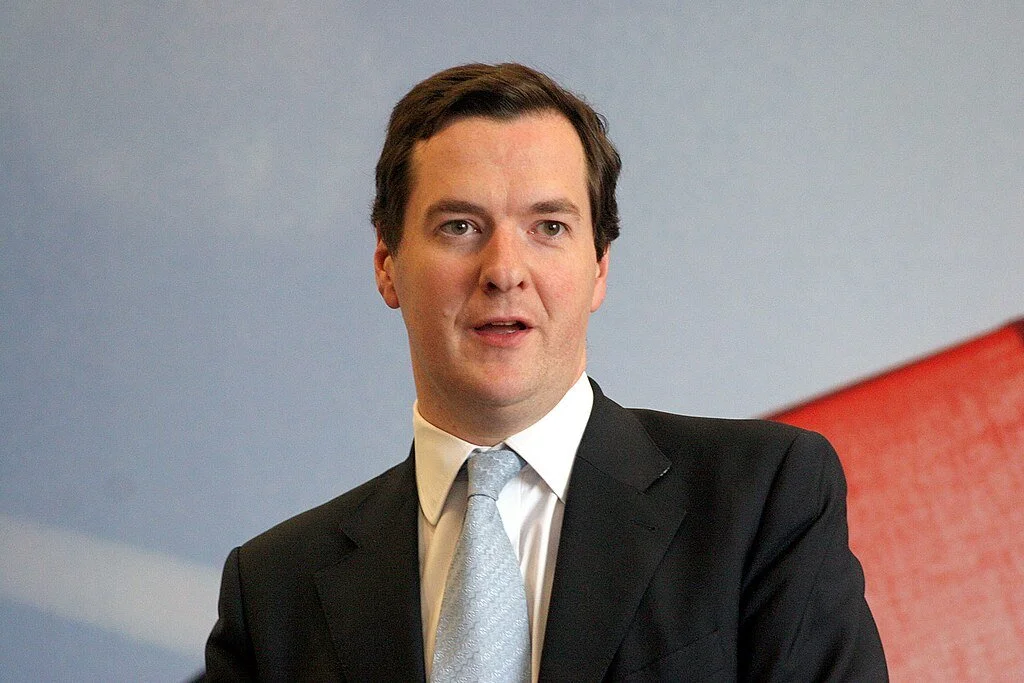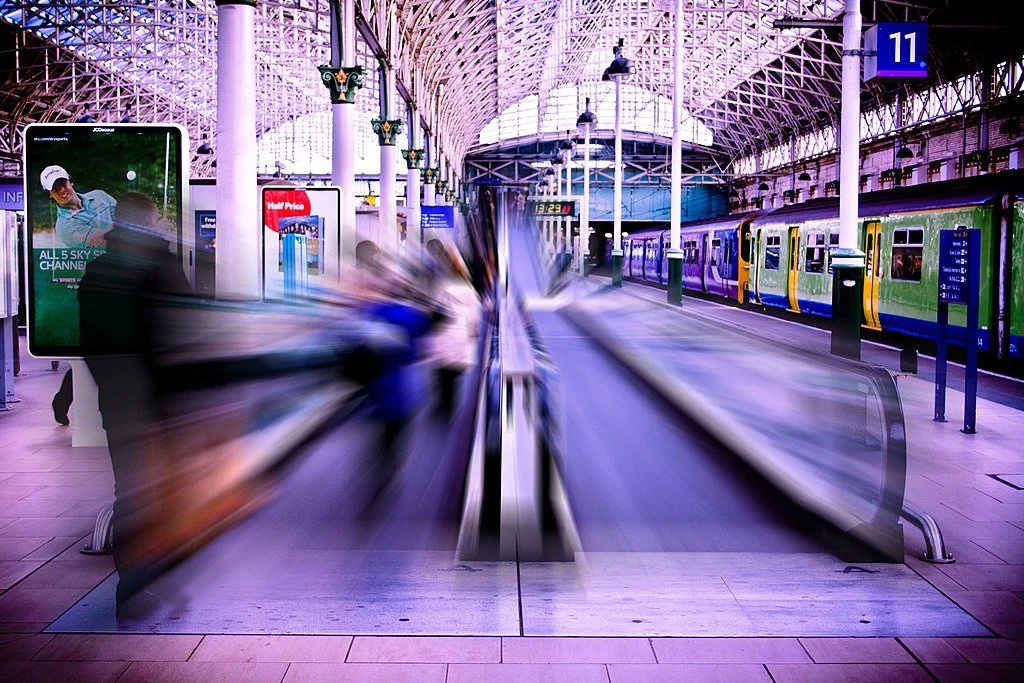How much longer will the Great North be left waiting on the platform?
In anticipation of next month's spending review and recent Green Book rule changes, Gill Morris explores why unlocking Northern Powerhouse Rail is key to turbocharging economic growth across the Great North.
Rachel Reeves needs NPR to go further and faster
I am a hostage to the North’s failing tracks and trains. I spend far too much “wasted” time on Northern platforms, trains and stations waiting for delayed, overcrowded, slow and, eventually, cancelled trains. I am not alone and this is not new. There are millions of fellow travellers who are being failed by rail in the North. Obviously, a disconnected North is not good for the UK economy, so why have successive governments failed us? The Great North will never reach its full growth potential without a gold standard commitment from Rachel Reeves to better connect its people and places to education, skills, jobs, services and opportunities. The UK will not go further and faster if, like me, you are one of the many left waiting on the platform going nowhere.
In the long ledger of British infrastructure, the North has long been short-changed. While London, finally, boasts the gleaming Elizabeth Line and the East-West rail plan got the Treasury go-ahead recently, the North’s arteries remain clogged with Victorian-era railways, slow services, and chronic underinvestment. Both HS2 and Northern Powerhouse Rail (NPR) were meant to change that. Yet in 2025, HS2 won’t touch the North, and NPR is still stuck in the sidings. Talked about endlessly, delivered barely at all.
Rails to Rebalance Britain
Great British Rail will, we hope, ‘end years of fragmentation’ but what will it do for the North? With Reform UK snapping at Labour's heels in northern seats, delivery matters. For a government eager to draw dividing lines, nothing would better show how serious Labour is about delivery - and about the North - than being able to point at the BIG transport infrastructure concreted into their plan for change.
This is a government in need of a win. Britain’s anaemic growth, projected to flatline yet again this year, has left ministers casting about for projects that could revive both the economy and their political fortunes. A bold, tangible investment in a revamped Northern Powerhouse Rail would do both.
Mayors Andy Burnham and Steve Rotheram, alongside former Rail Minister Huw Merriman, have called on the government to commit to building a new line between Liverpool and Manchester which could cut journey times by 20 minutes. The Liverpool-Manchester plan could unlock a £90bn economic boost in the North West by 2040, and support 22,000 jobs during construction.
Meanwhile, Transport for the North estimates that NPR could contribute £14.4 billion annually to the UK economy by 2060 and create up to 74,000 new jobs in the North. Improved connectivity would bring millions within a 90-minute journey of major cities, boosting access to employment and labour market dynamism. It is, in short, a growth policy.
And backing comes not just from our trailblazing northern Labour mayors. George Osborne, the former Chancellor who launched the Northern Powerhouse concept, called the cancellation of HS2's northern leg "vandalism" and continues to champion NPR as essential to rebalancing the UK economy:
"There have been lots of promises to upgrade the existing TransPennine Service, but fundamentally we want a new high-speed rail system of the kind you'd get elsewhere in the world." - George Osborne (BBC News, 2025)
Cleaner and greener is the way to go
Fixing rail in the North also offers a rare chance to make net zero mean something real to people. Support for climate action is strong, but voters are tired of abstract targets and top-down bans. What they want is clean, skilled, well-paid jobs and visible progress. Shifting travel from road to rail is an integral part of the clean growth story. NPR could take the equivalent of 58,000 cars off the roads, easing congestion and cutting emissions.
But more than that, it signals that going further and faster to net zero is part of the reindustrialisation agenda, not a technocratic one where working people lose out. For many of those in the North - the cleaner and greener choice is not an option. There are, simply, no clean or green trains or buses to choose from. You don’t secure change by making promises and pledges; you win it by building things and fixing what’s broken.
Fit for the future?
And still, the trains don't run. For years, ministers have mouthed support, but political drift and short-termism leave the North idling, despite its world-beating universities, entrepreneurialism, innovation and work ethic. I fear the previous government's partial commitments to an integrated 'Network North' have probably reinforced the pattern of under investment and disconnection - a feeling the North knows only too well. Whilst it’s comforting/inspiring to see our great Northern and Midlands Mayors rallying forth and carrying on regardless, I can't help feeling that the fight for a full fat, high speed NPR remains to be won. Rachel Reeves needs NPR tattooed on her heart to make it happen without hesitation, deviation or repetition.
Britain is held back by a familiar flaw: big infrastructure projects end up taking too long and costing too much. HS2’s London-to-Birmingham stretch is set to cost nearly £400 million per mile: eight times the cost of France’s equivalent high-speed line. Layers of bureaucracy, endless avenues for objections, a shortage of skilled personnel, and a fetish for gold-plated tunnelling have worked to slow and curtail bigger plans and ambitions which would be fit for the future and deliver growth and opportunity. If Labour is to revive and put oomph into NPR, it must also be serious about fixing how Britain builds: cheaper, faster, and with purpose.
All change!
Last July, people voted for change. That was Labour’s one-word slogan. And people expect change to be delivered. Change from sclerotic growth and decline. Change from your unreliable and overpriced commute. Change from the constant promises, only to be broken, that these things will be fixed.
Building the Liverpool-Manchester link and getting Northern Powerhouse Rail back on track should not be doled out as some regional favour. It’s a test of whether Britain can still do purposeful things to grow its economy and unite the country. Modern rail in the North isn’t just an upgrade. It’s an economic catalyst, a net zero policy, and a shot at stitching together a lopsided country.
With an Autumn Budget and spending review fast coming down the line, the Chancellor needs a growth agenda. Here it is, waiting at the platform.
Want to find out more about how we better connect the Great North? Devo Agency is preparing for this year’s Northern Transport Summit - the North’s only major Transport Summit focusing on what we need to connect all parts of the North and go further and faster. Join the Great North’s political and business leaders and help unblock those clogged arteries and maximise the Great North’s full growth potential.



